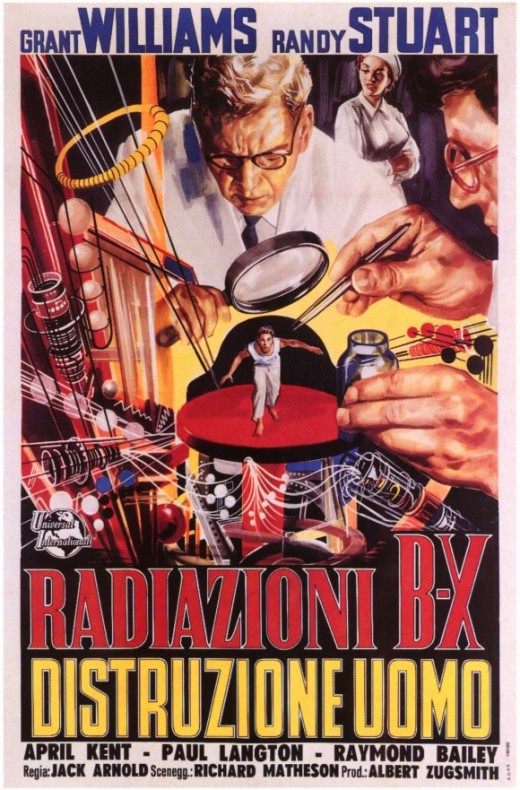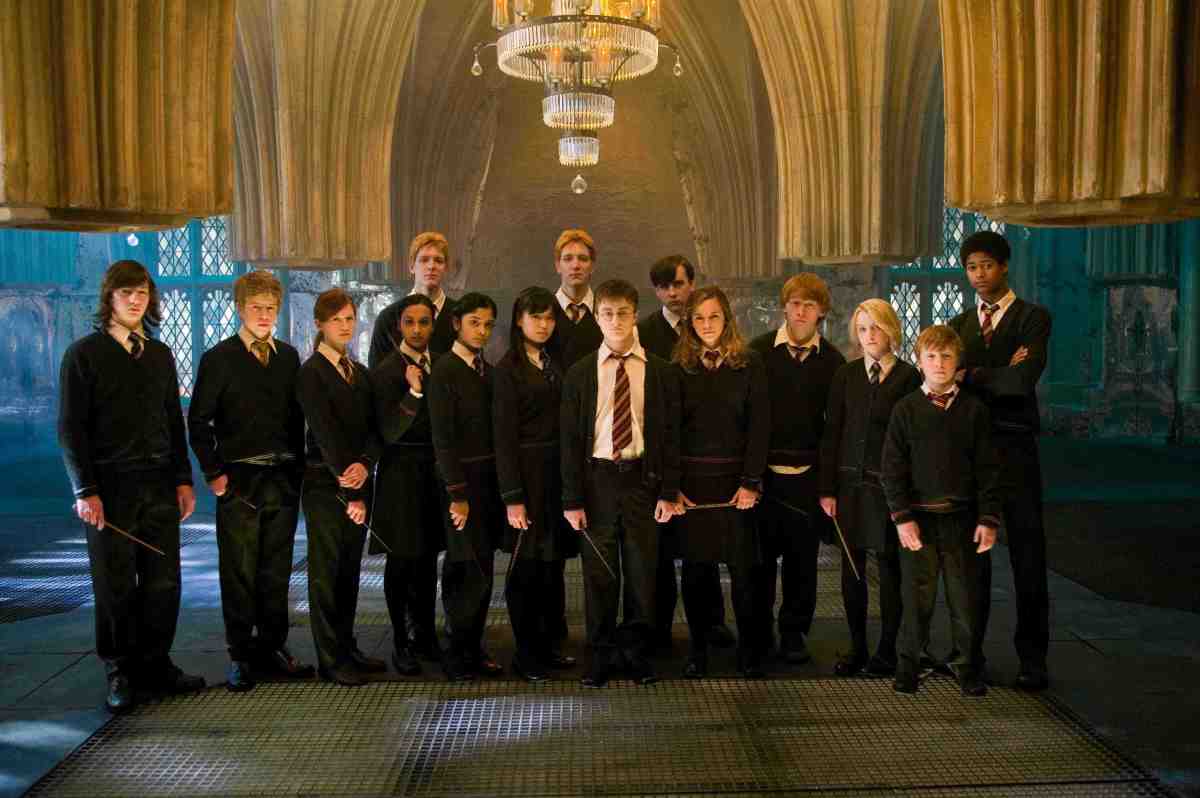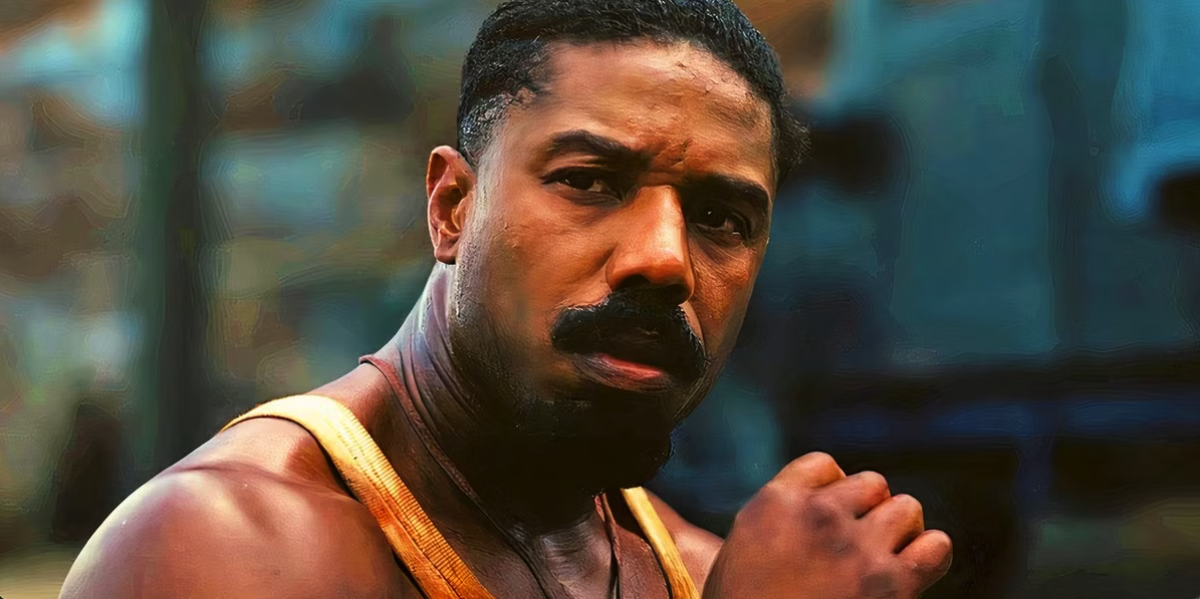The Incredible Shrinking Man (1957) - Size Does Matter!
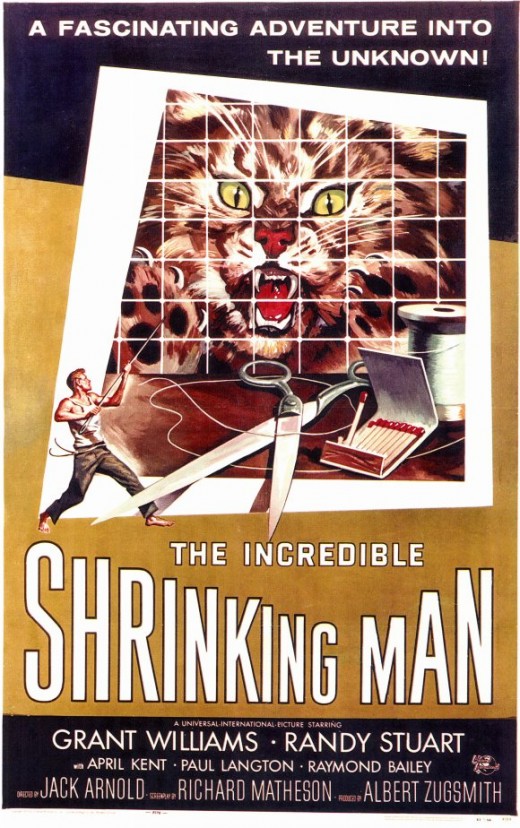
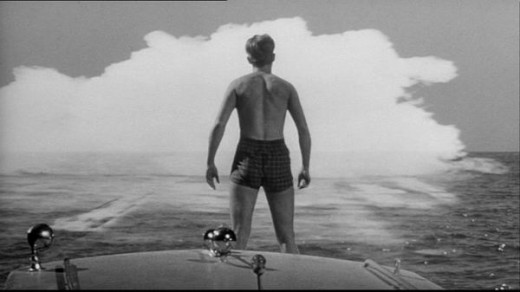
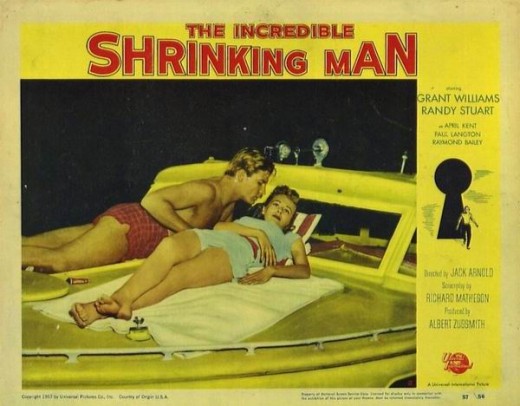
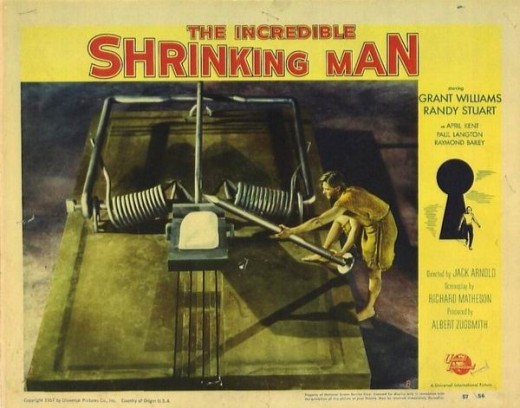
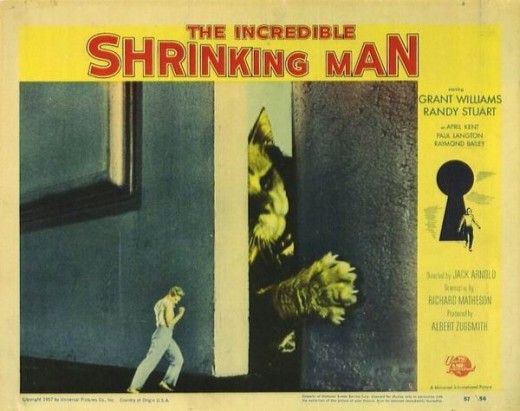
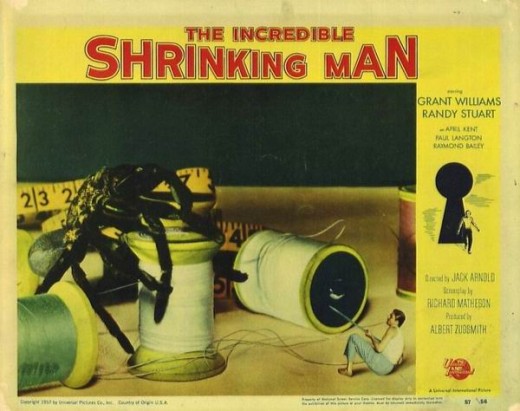
Scripted by author Richard Matheson from his own novel, The Shrinking Man (1956), and directed by genre veteran Jack Arnold, The Incredible Shrinking Man (1957) is one of the enduring classics of 50’s SF cinema.
The movie is typically paranoid and of its time, but its themes have not dated and it remains of “incredible” interest to sci-fi buffs. When Scott Carey (Grant Williams) becomes contaminated after passing through a radioactive mist, he slowly begins to shrink.
It is not long before his relationship with his wife (Randy Stuart) breaks down, she patronises him and there is severe sexual anxiety as she looms ever larger above him. Soon all that is familiar about his home is lost, and his surroundings become sinister and overwhelming.
What was once safe and comforting to him become increasingly threatening as he continues to diminish. He struggles to survive in the face of ever-increasing threat - first he has to fight off the family cat and the confines of his own basement, into which he falls into, becomes a surreal jungle in which he has to battle a deadly spider for survival.
Finally, in the most poignant and moving episode of the movie, Carey escapes out into the garden, looks up at the stars and eventually shrinks into oblivion.
The Incredible Shrinking Man is a profound and pessimistic exploration of society and the perceived safety of our world, its themes of unfamiliarity and lost identity are terrifying and bold.
The performances are excellent, particularly Williams, and the script is polished and well constructed. Richard Matheson's mature script is intelligently handled by Jack Arnold.
Clifford Stine's special effects were very effective for their time and are a paradigm for how these things should be done. A scene in the basement depicting giant drops of water was accomplished by filling up condoms and dropping them.
The film won the 1958 Hugo Award for Best SF Presentation and in 2009 was selected for the National Registry by the National Film Preservation Board
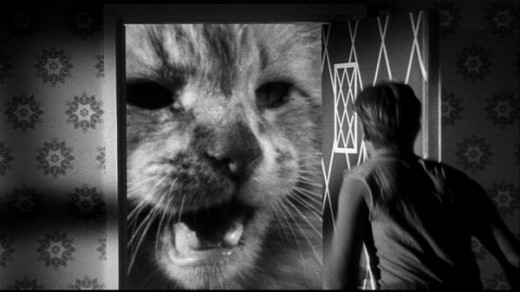
Carey’s final monologue –
“I was continuing to shrink, to become... what? The infinitesimal? What was I? Still a human being? Or was I the man of the future? If there were other bursts of radiation, other clouds drifting across seas and continents, would other beings follow me into this vast new world? So close - the infinitesimal and the infinite. But suddenly, I knew they were really the two ends of the same concept. The unbelievably small and the unbelievably vast eventually meet - like the closing of a gigantic circle. I looked up, as if somehow I would grasp the heavens.
The universe, worlds beyond number, God's silver tapestry spread across the night. And in that moment, I knew the answer to the riddle of the infinite. I had thought in terms of man's own limited dimension. I had presumed upon nature. That existence begins and ends is man's conception, not nature's. And I felt my body dwindling, melting, becoming nothing. My fears melted away. And in their place came acceptance. All this vast majesty of creation, it had to mean something. And then I meant something too. Yes, smaller than the smallest, I meant something too. To God, there is no zero. I still exist!”
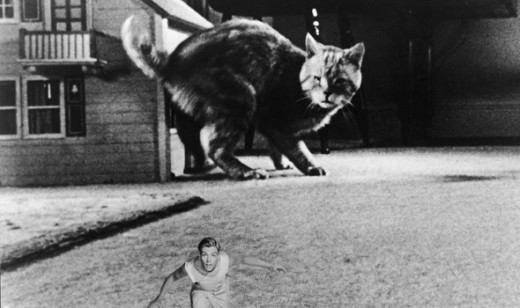
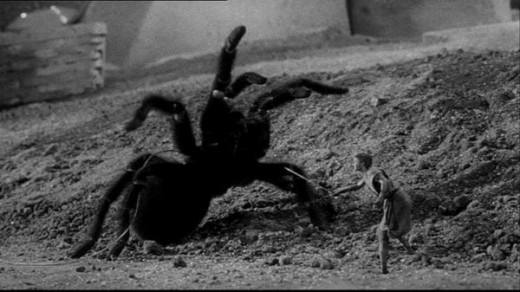
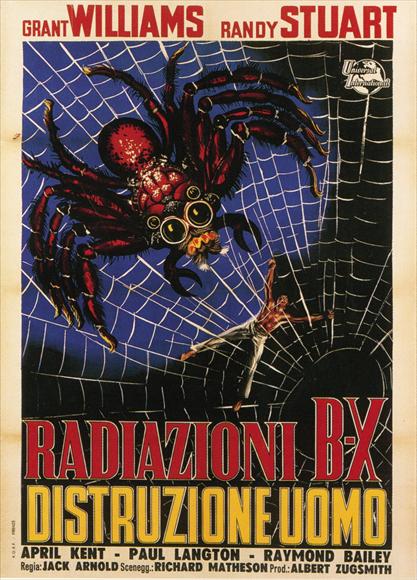
The critics wrote –
“The trick photography and fascinating set designs steal the show.” (Picturegoer)
“It is the superlative trick photography and sensitive soundtrack that create essential atmosphere and enable its story to move and thrill in turn.” (Kine Weekly)
“Simple, ingenious, effective.” (Times)
“B-budget science-fiction and simple stuff, but with more consistency and logic than usual, and with some rather amusng trick photography.” (Pauline Kael)
“One hails a science fiction film which is both inventive and humane.” (Dilys Powell)
